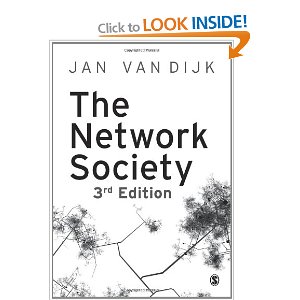Archive for the ‘Marx’ tag
Slowed Progress But Marxism no comments
This week’s reading was somewhat disappointing. I had intended to get through more content however I found that much of what I was reading required a much deeper level of analysis to understand. For this reason, rather than exploring social networks or globalisation; I have focused more heavily on sociology and in particular one of the most famous thinkers to have influence the field: Karl Marx.
Both for Politics and for Sociology, Marx is held in very high regard. Despite how authors feel about the validity of Marx’s views; it is quite clear that most, if not all, commenter’s extend a degree of respect for the man regarding him as a thought leader both in his own time and beyond. Whilst I would have preferred a broader week of reading, the fact that Marx and Marxist theory exists so prominently both in sociology and politics I did not begrudge the topic the extra time I afforded it. I consulted two texts in particular.
Marx, Marginalism and Modern Society

This book offered a good introduction to Marx as a whole, in terms of both his contribution to politics and sociology. The thrust of the argument presented in this text is that Marx’s key contribution was his critique of the political economy. The author presents the case that whilst this was recognised to varying extents in politics and economics; sociological perspectives took longer to entwine themselves with Marxist viewpoints.
On reason for the eventually large scale adoption of Marxist theory within sociology is suggested to pertain to Marx’s views on materialism, in particular; Historical Materialism. The perspective argued that whilst history might have previously separated notions of personhood from thingness, history rather required a deeper account of interactions. For example, dissecting the “things” called institutions into the individual “people” they were made of. This view offers significant importance for sociology allowing far deeper consideration of the people that were previously amorphous entities. Many comparisons can be drawn between these notions and social networking. Not least because of the changing relationships such sites have had with their user bases over time but also at the level of individual users with the structural changes from simple lists of activity to Facebook’s features like “Timeline”. These most certainly can be argued to personalise “events” allowing them to become related much more closely to the individual they are associated with.
Classical Sociology

This book provided a good logical point of development for explaining the development of Marxist sociological theory. In particular it dealt with the ways in which Marxist theory has been modified or adjusted in what has been argued is a necessary process of modernisation.
This notion of modernisation does not reflect technological or social advancement explicitly but rather the sociological ideas about “modernity”. As before, this is essentially the view that different cultures/societies have modernised differently leading to “multiple modernities”. The author highlights that sociologists like Anthony Giddens have argued that modernity changes the social structure and as such requires a post-modern sociology. The means that only theories that account for such changes, only post-modern theories, are sometimes argued to be the only theories relevant to assessments of the modern world. This text’s author however, believes that Marxism exploits a loophole in this argument by way of the additional work done by one Max Weber.
The author argues that Max Weber’s neo-marxism, in particular the addition of Nietzsche’s perspectivism, is the key to incorporating Marxist theory into discussions of “modern” society. Perspectivism is the theory that the acquisition of knowledge is inevitably limited by the perspective from which it is viewed. This is infact a common view within sociology and has significant relevance to the nature of accounts of social networks. Does a persons experience of myspace or facebook vary if they are a “user”, a “business”, a “celebrity”, a “moderator”, a “site owner” and so on. When considered alongside political perspectives this is of course still deeply relevant. The nature of both a person’s position/perspective, the role that position/perspective implies and the power (or lack of power) that it entails all contribute the nature of the interactions they will experience.
For my reading this coming week it is my intention to focus on texts relating to social media. In particular The Network Society.
